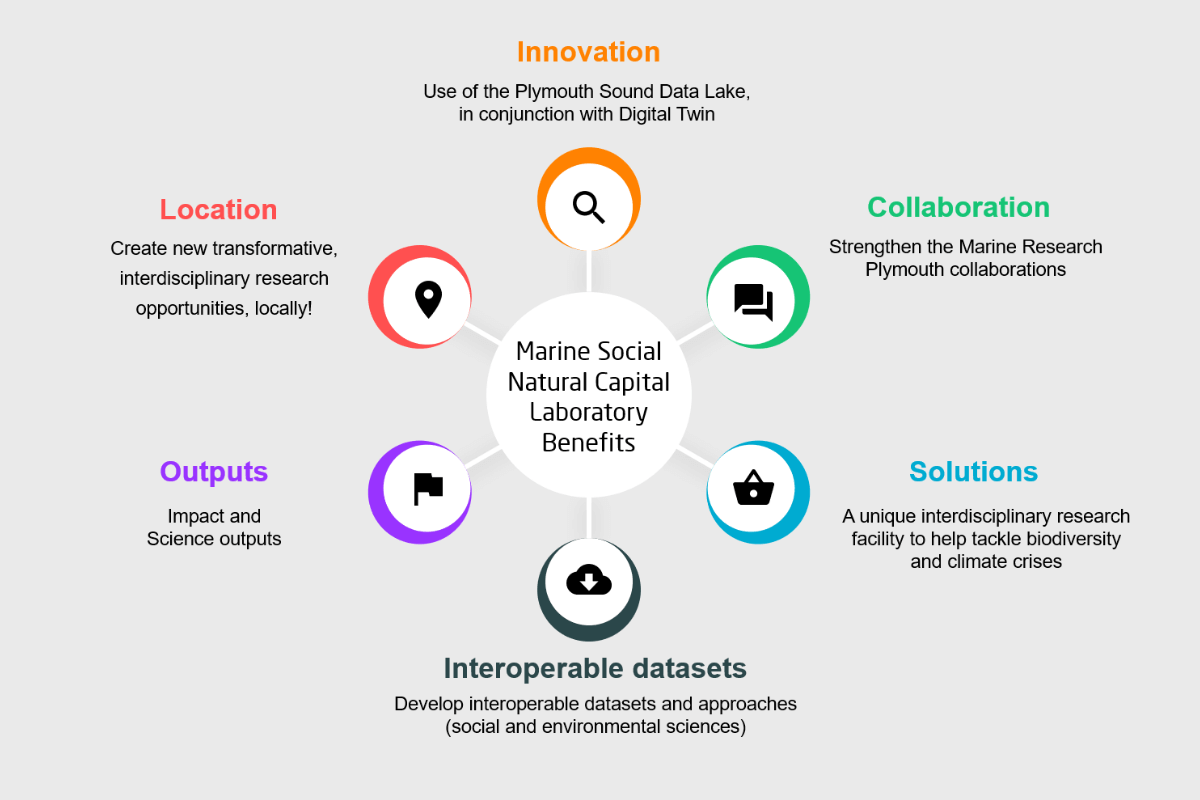Project
Marine Social and Natural Capital Laboratory
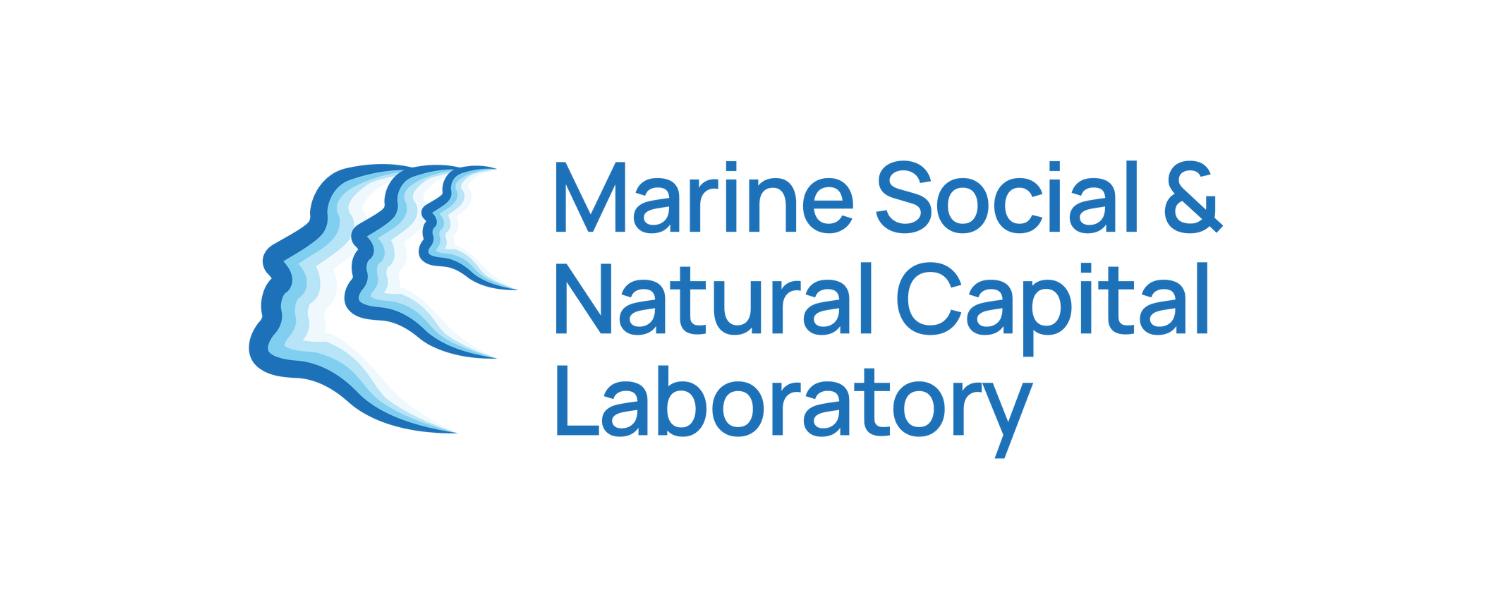
Active project
Principal Investigator: Dr Stefanie Broszeit
Other participants from PML:
Professor Nicola Beaumont, Dr Lizzi Gabe-Thomas, Dr Stephen Watson, Dr Claire Widdecombe, Dr Océane Marcone, Dr Olivia Rendon, Dr Keila Guillem Onate, Dr Anthony Ndah, Dr Andrew Edwards-Jones, Dr Sam Garrard, Dr Claire Szostek
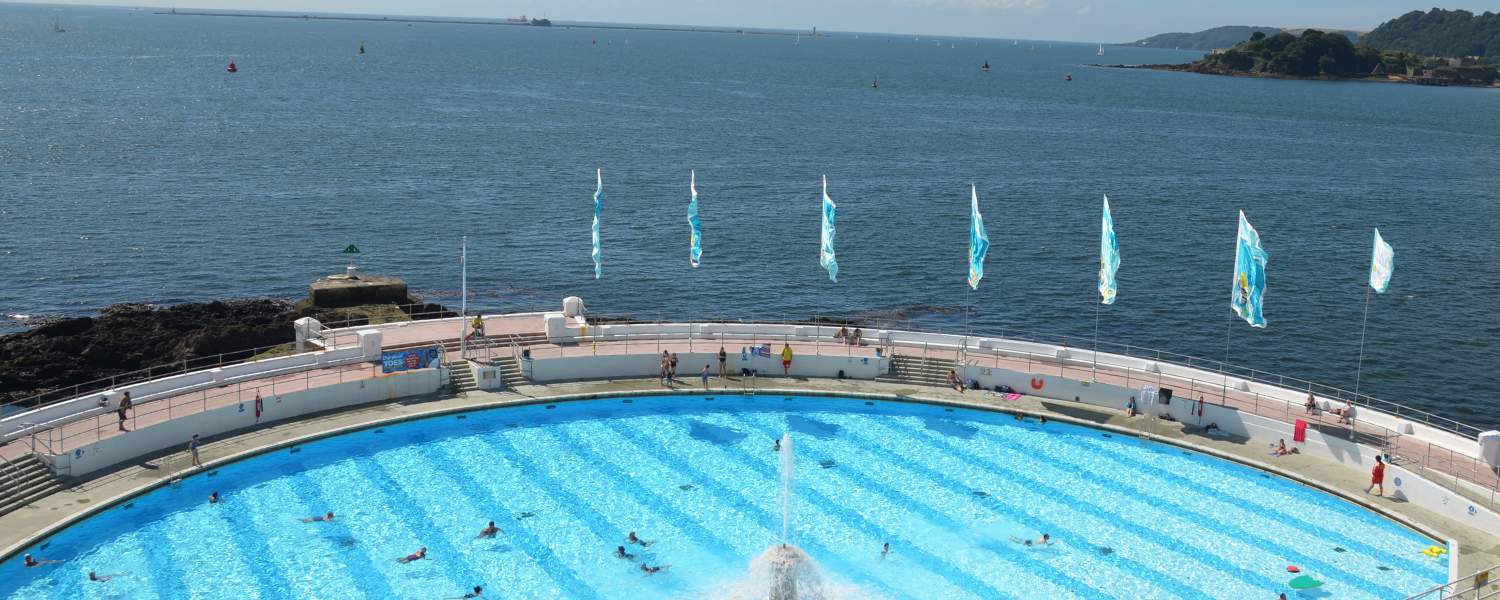
Vision
To realise a whole system thinking approach into the natural and social capitals of Plymouth Sound and the surrounding marine areas (from around the Eddystone, the Yealm Estuary and the Tamar Estuary) through ground-breaking research into sustainable use, human well-being and ecosystem services. This will be achieved by providing a first of its kind laboratory space linking the unique combination and breadth of Plymouth Sound research data both from natural and social sciences.
What do we mean by capital?
Applying a capital approach can help to ensure that environmental and human attributes are included in national decision making, rather than being forgotten or taken for granted. The term ‘capital’ may evoke a sense that everything can be monetarily valued this is not always the case, indeed many value types can be included in a capital assessment.
Natural Capital refers to the elements of nature that produce value or benefits to people (directly and indirectly), such as the stock of forests, rivers, land, minerals and oceans, as well as the natural processes and functions that underpin their operation. Natural capital consists of the elements of the natural environment which provide valuable goods and services to people such as clean air, clean water, food and recreation. (Towards a Framework for Defining and Measuring Changes in Natural Capital (publishing.service.gov.uk).
Social Capital concerns the institutions that help us maintain and develop human capital in partnership with others; e.g. families, communities, businesses, trade unions, schools, and voluntary organisations. (The Five Capitals - a framework for sustainability | Forum for the Future)
Research objectives
We have three key objectives:
- To link natural sciences data collected over the last 30 years in the boundary of the Marine Social and Natural Capital Laboratory to a natural capital framework
We will use long-term natural sciences datasets created at Plymouth Marine Laboratory (for example, Western Channel Observatory, SmartSound and The Tamar Estuary benthic survey data) and Marine Research Plymouth Some of these datasets have been collected over several decades, and we will assess how they can inform ecosystem service and natural capital research. - To create a more fit-for-purpose natural capital and ecosystem services framework for the area of the Marine Social and Natural Capital Laboratory
We have identified a need for natural capital and ecosystem services frameworks to be critically assessed and re-evaluated to include recent social science research developments around cultural ecosystem services. - To create an annual survey of residents of the Plymouth Sound catchment area to understand & monitor their relationship with the coastal & marine environment over time.
We will use psychological and social science approaches to better understand the benefits that the Sound and estuaries provide residents, focusing on the emotional and cognitive connection people have with the ocean. We have funding to develop the foundation of a robust survey with the aim of creating a time series social dataset that will allow us to monitor change over time due to planned and unplanned events such as infrastructure or localised climate change. The survey will also provide opportunities to test hypotheses of relevance to community climate change adaptation. We will strive to ensure this data is interoperable and can be linked to the wealth of natural science data already held by the MSNCL.
Current Activities
- Build up our understanding of where and what types of data we have and what else we need to assess ecosystem services of the Marine Social and Natural Laboratory, using natural and social sciences approaches.
This work will provide a data map that we can use to assess natural capital and ecosystem services in The Marine Social and Natural Capital Laboratory and address pressing questions about the diversity of ecosystem services. It will also guide future research and monitoring approaches at Plymouth Marine Laboratory. - Outreach to Plymouth Sound users.
Currently, we are carrying out engagement activities with academics, stakeholders, and users of the area of the Marine Social and Natural Capital Laboratory, and this will continue to be a key work area of our work. - We will collaborate with Plymouth City Council, the Marine Research Plymouth partnership, and the National Marine Park.
Social and natural capital approaches help assess the benefits people receive from natural environments, and this work must be done in collaboration with stakeholders and colleagues from a wide range of expertise and experiences. These dialogues will inform the work that we carry out, ensuring we reach the best outcomes for both nature and humans.
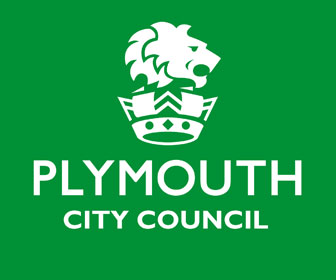 |
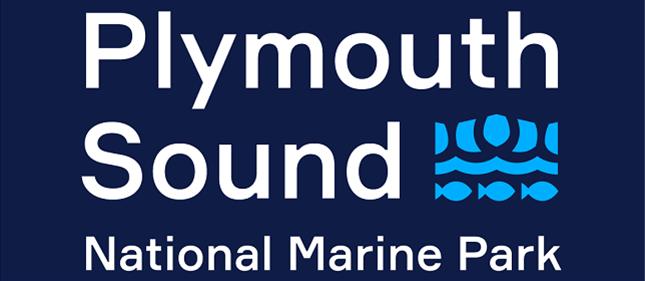 |
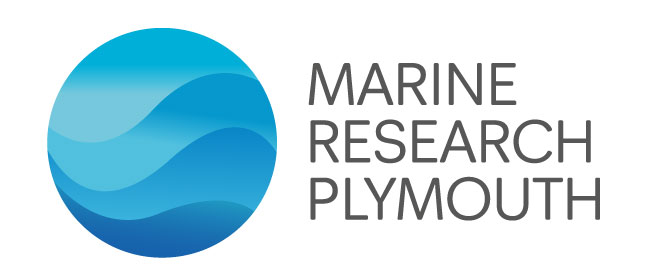 |
Map
In development.
